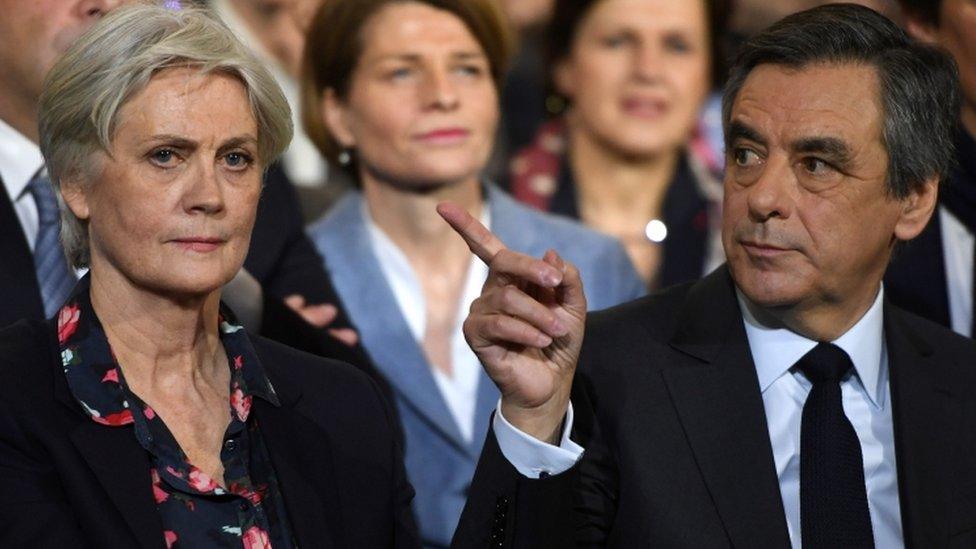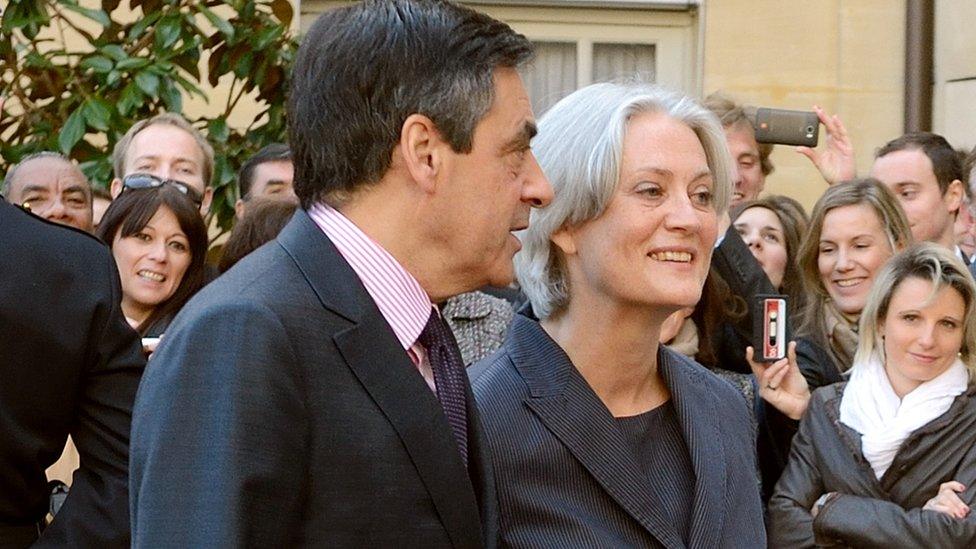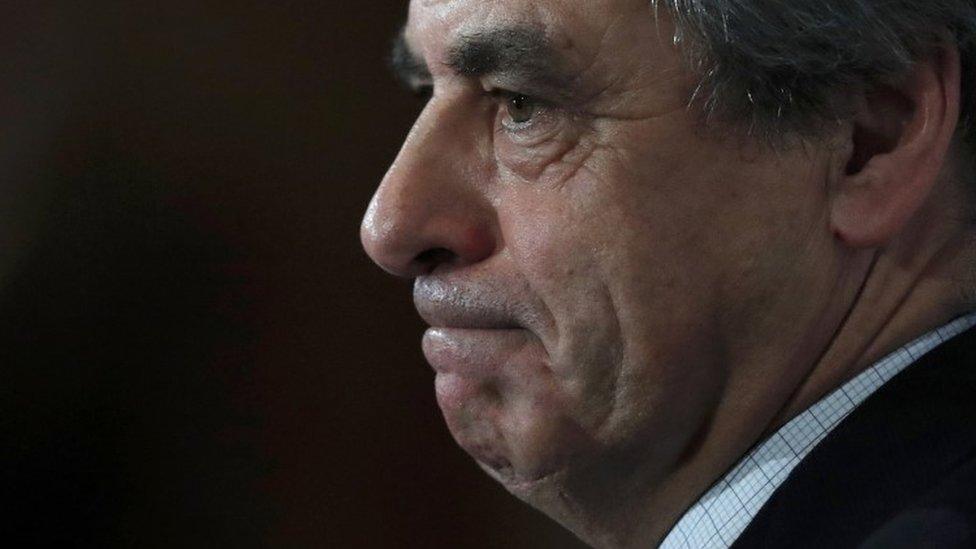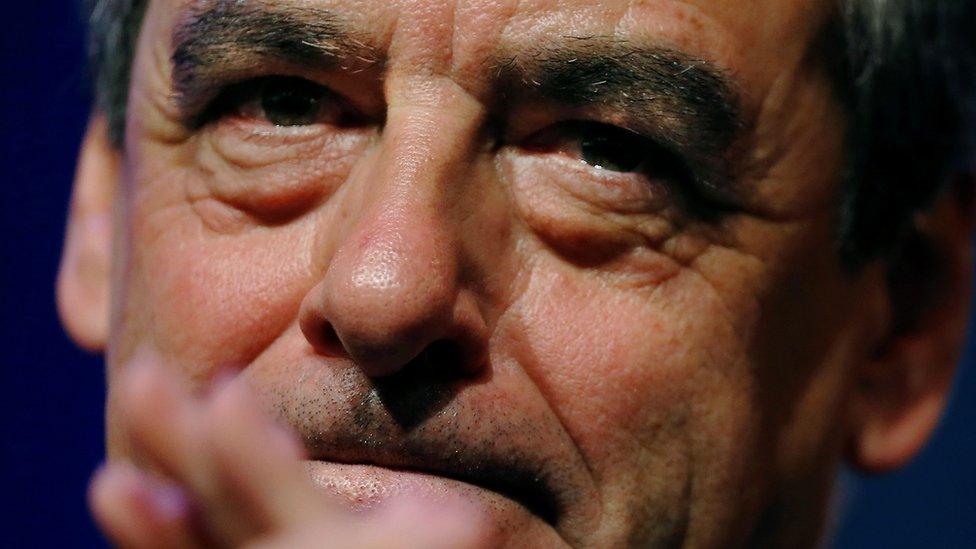France election: Fillon apologises over family payments
- Published
Francois Fillon: "I apologise to the French people"
The centre-right candidate for the French presidency, Francois Fillon, has apologised over payments made to family members for parliamentary work.
He said that although the practice was legal, French people no longer accepted it and that he had made a "mistake".
Mr Fillon's campaign has been dogged by claims, which he denies, that his wife and two of his children were paid for non-existent parliamentary work.
Some in his party, the Republicans, feel he should step aside.
Recent polls have suggested that he may be eliminated in the first round of the presidential election in April, paving the way for a possible run-off between centrist Emmanuel Macron and far-right leader Marine Le Pen.
Fillon payment inquiry: What you need to know
But speaking to reporters in Paris, Mr Fillon insisted that he would stay in the race.
He said he had acted legally, had "nothing to hide", and that both his wife and children had done vital work when he was a member of parliament.

Mr Fillon (right) insists that neither he nor his wife (left) have done anything wrong
Mr Fillon also said he would publish details of his assets on his website and propose reforms on rules regarding parliamentary work.
He added: "What was acceptable in earlier times no longer is. By working with my wife and children, I was mostly mindful of this relationship of trust, but today this causes mistrust. It was a mistake. I regret it profoundly and I apologise to the French people."
Tarnished image
Mr Fillon, a 62-year-old former prime minister, has consistently denied wrongdoing since the allegations surfaced last month.
Media reports said his wife, Penelope Fillon, earned €831,400 (£710,000; $900,000) as her husband's parliamentary assistant between 1998 and 2012, and questioned how much work she had done.
It subsequently emerged that Mr Fillon had hired two of his children to act as lawyers, paying them €84,000 between 2005 and 2007 - when they were students.
Investigators have begun an inquiry into the reports. Mr Fillon said he would step down if placed under formal investigation.
Before the claims were published, Mr Fillon was a leading contender in the presidential election, thanks in part to his image as an honest politician.
The practising Catholic enjoyed a landslide victory over Alain Juppe, another former prime minister, in a party primary in November.
Mr Juppe denied reports that he was ready to step in as an alternative candidate should Mr Fillon stand down. "No means no," he tweeted, external (in French) on Sunday.
Reacting to Monday's address, Socialist presidential candidate Benoit Hamon said Mr Fillon was "still in denial" over the payments to his wife.
But Eric Ciotti, a senior member the Republican party, tweeted, external that Mr Fillon's "sincerity and total transparency" should be an inspiration for all candidates.
- Published29 March 2017

- Published1 February 2017

- Published28 March 2017
